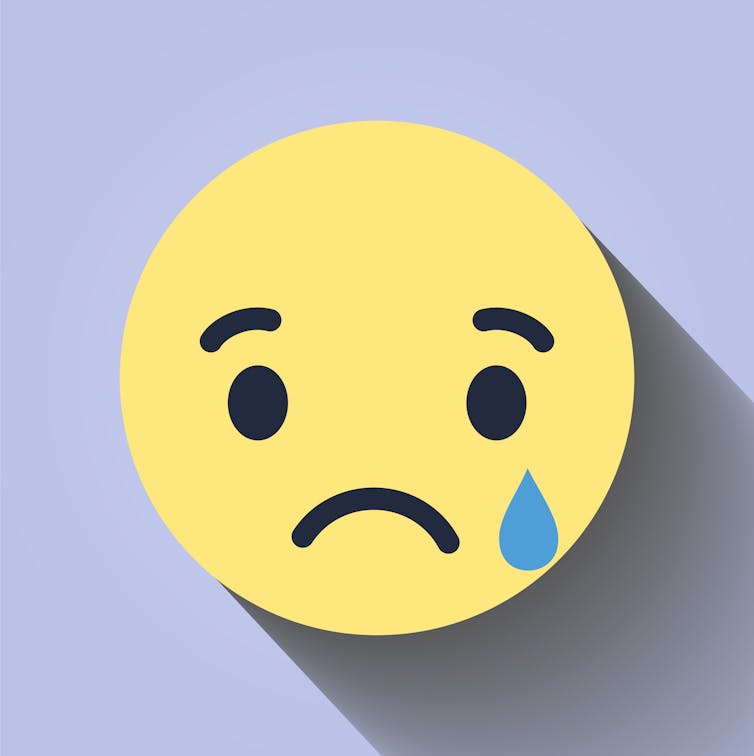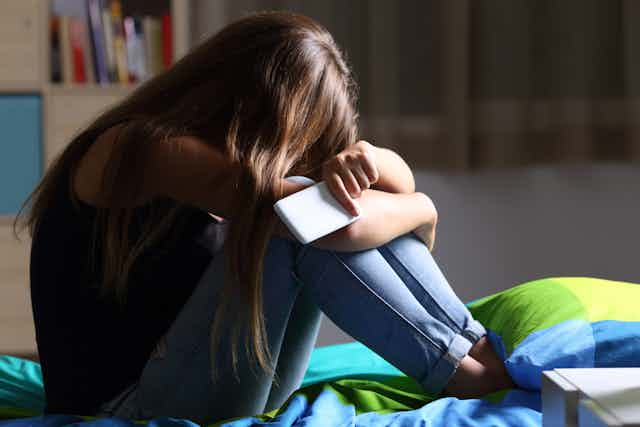Even Facebook agrees that social media can be bad for your mental health. And research by the Department of Education has found that the mental well-being of teenage girls in the UK is worsening, with the impact of social media cited as the cause.
Yet my research reveals that more people are turning to these platforms for help with their mental health issues. This has been exacerbated as the crisis in the NHS sees waiting times for appointments grow. While most of the people I spoke to believed social media helped them, there is a concern that it could be adding to ongoing mental health problems.
Mental health has recently become the focus of attention within UK policy, with the proposed rehash of the Mental Health Act, and the new Power Threat Meaning framework, which aims to reduce the “medicalisation” of mental health. Despite raised awareness of some the issues, more and more people are turning away from their GPs as they fail to get the support they need. This is usually due to lengthy waiting lists for counselling, or a tendency to overly rely on prescribing medication as a cure all.

Many of these people turn to online support, which in recent years has been through the medium of anonymised peer-to-peer community forums. This has evolved and people with mental ill-health are now turning to social media to “out” their health issues.
But social media’s relationship with mental health is controversial. If even Facebook is telling us that being on social media can be bad for our health, why are people using it to create support networks?
Celebrity social media “outings” have also helped to raise awareness. Last year, Sinead O’Connor publicly posted a video of herself on social media where she was clearly in need of support. She said it was her hope “that this video is somehow helpful”, using the hashtag #OneOfMillions. Her post sparked discussions about the “right way” of asking for help, but the debate by no means came up with any answers.
Status updates and future employers
It is estimated that 39% of health information seekers use social media, often joining a specific health-related group. But many people are now choosing to use their personal profiles to post their “social outing” of their mental health problems. While there is no statistical evidence for the amount of users doing this, Facebook have realised that people are using their status updates to talk about their mental health, including suicidal feelings.
Not only has social media been linked with an increase in cyber bullying but posting information about risky behaviours (such as social drinking) has been linked to a decrease in job opportunities in the future. It is therefore realistic to imagine that current and future employers are looking at our mental health history if we are posting about our health online.
My research has shown that there are many positives about asking for support for mental ill-health through social media, as long as you have already sought medical advice and have a firm diagnosis. General status updates that are woeful or cryptic may mean that the person is seen as “whingy” and friends may not see a cry for help, potentially leaving the poster isolated and vulnerable.
Two of my PhD participants who used social media sites to out their mental problems found that they were still intolerant of others who did the same. One said of their friend’s Facebook activity:
Most of her posts are about her battles, her daily battles, and she’s really open about it. And actually, I don’t mind, but sometimes even I go, well you don’t need to share everything.

Another expressed her irritation at having to deal with other people’s problems when she is trying to get support with her own.
The issue is that people may be getting fed up with constant posts of people talking about their mental health and there are signs that they can retaliate in a negative way. One of the participants in my research stated that after he had “come out” on Facebook, a (former) friend told him, in no uncertain terms, that Facebook was “not the place for that kind of thing”.
So although Facebook can have a positive effect for those seeking support should we really be looking at social media as a supportive mechanism for health? Or should we still pretend that our lives are perfect and that we are always happy because that is what our Facebook and Instagram “friends” want to see?
In the short term, it seems that social media could be helpful in creating supportive networks for people with mental ill-health. But in the long term, it depends on how we start to challenge societal perceptions of the issue. If nothing changes, then at least be prepared for a lack of job offers in the future.
The Samaritans can be contacted in the UK on 116 123. Papyrus is contactable on 0800 068 41 41 or by texting 07786 209 697 or emailing pat@papyrus-uk.org. In the US, the National Suicide Prevention Hotline is 1-800-273-8255. In Australia, the crisis support service Lifeline is on 13 11 14. Hotlines in other countries can be found here.


